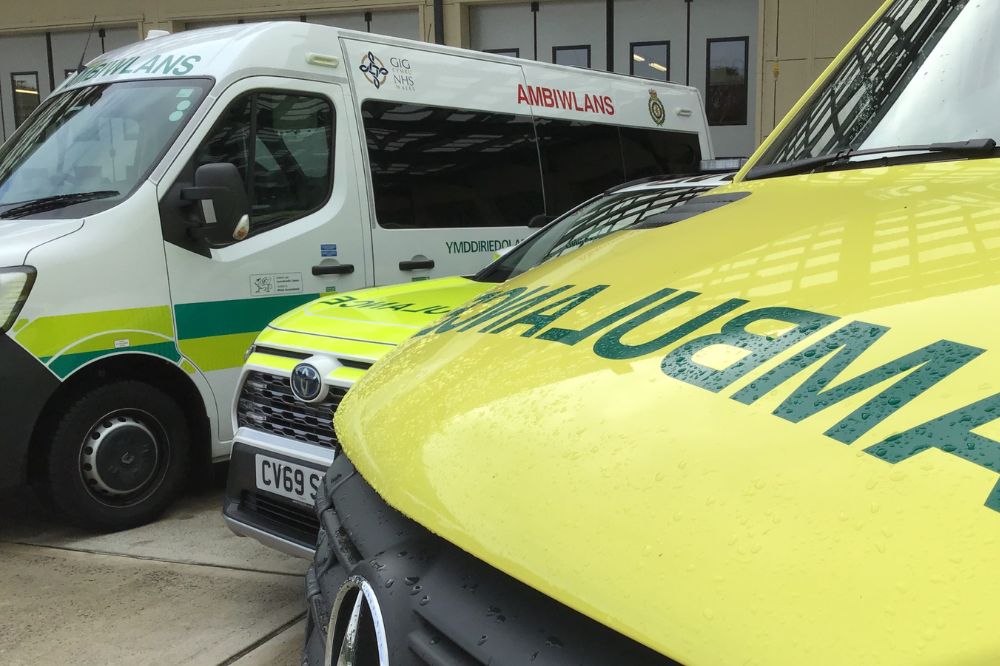New ambulance response categories to be introduced ahead of winter

New ambulance response categories will be introduced ahead of the winter, the Welsh Government has announced.
A new “orange: time sensitive” category will aim to identify time sensitive complaints such as stroke quickly by prioritising fast assessment, response, clinical care and transport.
Currently, individuals suffering a stroke or STEMI, a type of heart attack, are grouped with many other cases in the broad “amber” category, which represents 70% of all 999 calls to the ambulance service.
Under the new approach, “rapid clinical screening” undertaken by nurses and paramedics in 999 clinical contact centres will help identify time sensitive conditions more quickly and dispatch skilled ambulance clinicians.
This will provide the best clinical care in vehicles capable of rapid transport to hospital and will give service users the best chance of a better outcome.
The changes replace the current categories with:
*‘Orange: time sensitive’ – for conditions needing a fast response and care from ambulance clinicians before transport to hospital for specialist care, such as a stroke.
*‘Yellow: assess and respond’ – for conditions which require further clinical assessment to determine the best pathway of care, such as a person suffering from abdominal pain who may be suitable to stay at home or may need further investigations.
*‘Green: planned response’ – for conditions such as a blocked catheter which may require community care or planned transport to urgent care services.
The new categories, which replace the current amber category, are scheduled to be implemented before winter this year as part of a new emergency ambulance performance framework.
Additional measures will track the clinical care provided by the ambulance service and the duration from a 999 call to arrival at the hospital for stroke and STEMI cases. Monitoring and reporting will also include average and longest response times.
Time sensitive
This follows the first phase of ambulance call improvements introduced on 1 July, which created new categories for cardiac and respiratory arrest and life-threatening emergencies.
Health Secretary Jeremy Miles said: “For people in stroke, every minute counts if lives are to be saved and disability reduced or prevented – with each minute that passes, around two million brain cells are lost.
“That’s why we’re introducing a new orange category into the system which will help our ambulance service identify time sensitive complaints such as stroke quickly and get patients the right specialist treatment faster.
“This will help ensure that people experiencing a stroke receive the rapid, tailored response they need to survive, recover and thrive following a stroke.”
To support people with time sensitive complaints like stroke to receive timely ambulance responses and access to the right care quickly a Pre-hospital Video Triage approach is being piloted at five Welsh stroke services with support of the ambulance service.
It will see real time communication between pre-hospital clinicians, such as ambulance clinicians, and hospital stroke specialists, to improve the assessment and diagnosis of stroke.
Early findings show it supports clinical decision making improves pre-arrival information for hospital teams, speeding up access to life saving and life changing treatments.
Health Boards also continue to develop a new model for stroke care.
From 1 July, the University Hospital of Wales has been providing a daytime South Wales Thrombectomy service.
Andy Swinburn, Executive Director of Paramedicine at the Welsh Ambulance Service, said: “We welcome this announcement from Welsh Government on the creation of new categories and the continued focus on patient outcomes, and not solely on response times.
“The nature of how patients present to 999 has changed and it’s important to reflect this in the way we respond, first and foremost to increase ambulance availability for those who truly need it but also to ensure that patients who can be cared for closer to home get that opportunity.
“This latest change, which builds upon those already introduced for the most life-threatening calls, is another step towards creating the framework to do this.”
Dr Shakeel Ahmad, national clinical lead for stroke in Wales, said: “When a patient is having a stroke urgent rapid treatment is critical as every second counts in order to restore blood flow to the brain for those patients eligible for treatments to remove or disperse blood clots from the brain.
“The new orange: time sensitive category will be able to prioritise stroke patients who require this urgent treatment.
“The category changes are important steps towards a transformed model for stroke care in Wales. This will enhance the stroke pathway leading to greater number of patients receiving life changing treatment in a timely fashion.”
Support our Nation today
For the price of a cup of coffee a month you can help us create an independent, not-for-profit, national news service for the people of Wales, by the people of Wales.






Ambulance handover delays would disappear if other hospital departments and social care had to accept A&E transfers without any delay.